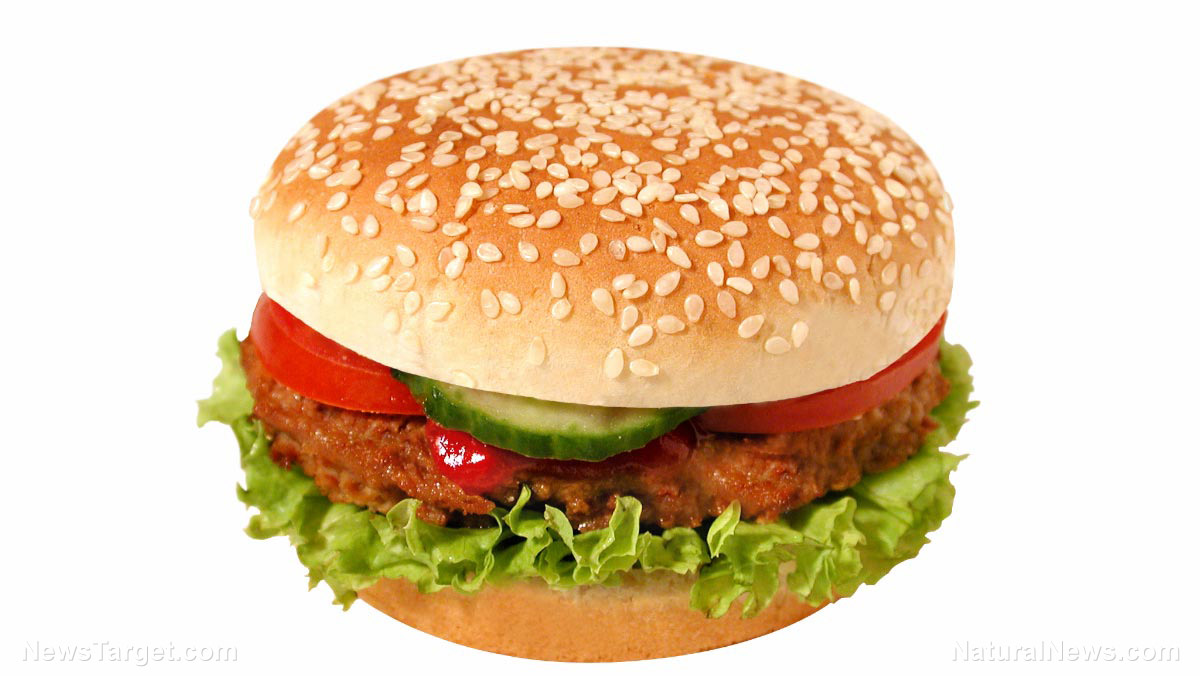
Advertisement
When we think of fast food, we tend to picture climbing in our cars and heading to a drive-through or take-out joint. In fact, it’s easy to imagine that all fast food comes in some kind of disposable container accompanied by a soda, a napkin and a straw. We might even feel quite strongly that any food made at home is “homemade” and therefore healthy, while food purchased outside the home is junk food and therefore unhealthy.
It may come as quite a shock, then, to discover that any food that is processed – including cold cuts and hot dogs – is “fast food,” even when it’s prepared and eaten at home. And while these foods may seem like a quick and easy solution in a hectic modern world, their convenience does not justify the serious health risks they pose.
More than half our calories come from “fake” food
While the world has been placing a massive amount of focus on the growth of fake news, an even bigger and more dangerous problem has continued to grow rapidly and without much intervention. As reported by Food Revolution Network (FRN), the vast majority of people in the developed world get more than 50 percent of their total calories from fake food – processed, junk food that’s quick and easy in the short-term, but causes lasting damage in the long-term.
And the developing world is not far behind the West. Fast and processed food producers like McDonald’s, Nestle and KFC have been aggressively targeting this market and have enjoyed great success as a result. In countries like Brazil, India and China, where fast food was virtually unheard of a few decades ago, western chains are now commonplace. (Related: Processed food industry making American soldiers ‘too fat to fight’.)
So, what is fast food?
According to Dr. Joel Fuhrman, author of the book, Fast food genocide: How processed food is killing us and what we can do about it, fast food is anything that comes out of a bag or box, or which has a wrapper around it; in other words, anything that can be eaten quickly because it has been pre-made.
Fast foods therefore include croissants, bagels, French fries, energy bars, sodas, deli meats and entrees, processed snack foods, cookies, cakes, candy, and products made with processed white flour.
The risks of all fast foods
As noted by FRN, fast foods cause far more harm than simply damaging our physical health – which includes increasing the risk of cancer, diabetes, obesity, stroke and premature death:
[T]hese foods are also altering your brain and your mental health – fueling depression, mental illness, and other issues.
According to a study published in the Public Health Journal, people who eat fast foods are 51% more likely to develop depression compared to those who eat little or no fast food. And this finding was for people who only consumed two servings of fast food a week.
Studies have also found that eating processed food increases risk of mood swings, anxiety, brain fog, violence and aggression.
And the effects are even more severe in children. In fact, kids whose parents do not allow them to eat fast food have been found to be less moody and hyperactive and more cooperative.
FRN reported further:
According to a study published in the British Journal of Psychiatry in 2009, eating candy and sweets in childhood is linked to later-life violence, drug use, and drug abuse more than any other parameter. It was found to be a more significant determinant even than being raised by a single parent or growing up in poverty.
And raising children on unhealthy foods doesn’t only impact their lives, but also the lives of their descendants. Dr. Fuhrman points out that when children eat unhealthy foods, they may be damaging their genes.
All things considered, then, no matter how tempting it may be to reach for that packet of hot dogs or stop at the drive-thru on the way home, the long-term health effects just aren’t worth the risk.
Why not rather plan ahead by cooking a few extra meals on the weekend to be eaten on those super rushed, tiring midweek days?
Sources include:
Advertisements







